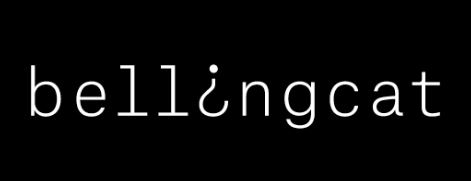The transparency movement has finally come of age. Power has shifted to the users. Their trust has to be earned in different ways now
says Jay Rosen, associate professor at the Arthur L. Carter Journalism Institute at New York University, in a blog about the current change in journalism from a closed professional stronghold to open ‘citizen journalism’ with an increasing contribution of passionate amateurs. To regain confidence in this post-truth era a journalist has to show who he or she is. Elucidate your background and biasses but most of all show the sources you are using. Be transparent. The new news consumer doesn’t blindly trust the reputation of good old BBC, New York Times or NRC Handelsblad.

A preeminent example of this ‘transparency movement’ is Bellingcat, that started out in 2014 as an international group of volunteers around blogger Eliot Higgins from Leicester UK. They describe their work as ‘online open source and social media investigation’. Last Friday the premiere occured of the documentary ‘Bellingcat – Truth in a Post-Truth World’ at the International Documentary Film Festival Amsterdam (IDFA). The film, directed by Hans Pool,shows us the life of a group of investigators from different countries, most of the time working from their homes, sitting behind their computers and communicating by email, phone of groupware like Slack. Among them are Timmi from Berlin, who used to work for the secret service in former East Germany,and Christiaan from the Netherlands, a student of International Relations at Groningen University.
The great strength of this collaboration became clear in the summer of 2014, when Malaysian Airlines flight MH17 was shot down over Ukraine. Making use of public online information, for instance from Google Earth, the group soon found out that the plane was hit by a Buk missile, fired from a launcher of the 53 brigade of the Russian army. Russia denied any involvement, but in 2018 Bellingcat revealed the name of the main suspect, the Russian army officer Ivankov, alias ‘Orion’. Also in tracking down the perpetrators of the poisoning of father and daughter Skripal in the UK with the chemical agent Novichok, Bellingcat played a major role. Unfortunately this has not yet brought about a trial of one of the suspects, likewise not of Mahmoud al-Werfalli, commander of an elite unit of the Lybian army, for whose unlawful random killings proof was delivered by Bellingcat based on video footage. Werfalli is still a free man.
In this last case, but also in the case of the Syria warcrimes, Bellingcat joins hands with the International Criminal Court (ICC) in The Hague. It is quite a challenge to archive digital data, like video footage and photo’s from social media, and make them accessible by using proper tags, so that they could be used as evidence in a court of law. Little by little Bellingcat outgrew itself. The organisation now consists of ten paid staff members and many helpers.
A problem that Bellingcat will encounter in the near future is liability. When the BBC or another big news organisation accuses a powerful world leader of a crime, there is enough money to pay a couple of good lawyers. Money the individuals from Bellingcat don’t have. On the other hand, within the traditional news organisations thorough investigative journalism has moved to the background, mostly due to cutbacks. The Bellingcat amateurs became the experts and the oldfashioned news providers deal with a growing lack of expertise in online investigation. Today the Bellingcatters are frequently being asked to give workshops for professional journalists about their methods.
The documentary shows what has become of the members over the past few years. The group seriously worried when one day they could not get in touch with Timmi in Berlin. Afterwards it became clear that he fell into a coma because of meningitis. Christiaan Tiebert, the former Groningen student, exchanged his Bellingcat activities for a paid job at The New York Times. For his reconstruction of the 2016 Turkish coup attempt he was awarded this year’s Innovation Award as part of the European Press Award.
Bellingcat is much-maligned by autocratic governments, that don’t think highly of the transparency the group advocates. Not everybody is striving for a free and open society, where fakenews gets unmasked. After watching the documentary I realised that the Bellingcat members are an easy target for evildoers. But they don’t seem to be bothered very much by that. However, one thing I know for sure: one day when I grow up (and finish my studies at Leiden University) I will become a Bellingcatter myself.
References
Bellingcat website: https://www.bellingcat.com/
Bellingcat on Twitter: https://twitter.com/bellingcat
Bellingcat on Facebook: https://www.facebook.com/bellingcat/
Bellingcat on Insta: https://www.instagram.com/explore/tags/bellingcat/
IDFA website introducing the Bellingcat documentary: https://www.idfa.nl/nl/film/fc6b7bb4-3fc9-405d-96fc-231816654260/bellingcat-truth-in-a-post-truth-world
Watch the full Bellingcat documentary on Dutch TV VPRO 2Doc website: https://www.vpro.nl/programmas/2doc/2018/bellingcat.html
Jay Rosen, ‘Show your work: The new terms for trust in journalism’ on his blog of december 31, 2017 on PressThink: http://pressthink.org/2017/12/show-work-new-terms-trust-journalism/



Recent Comments